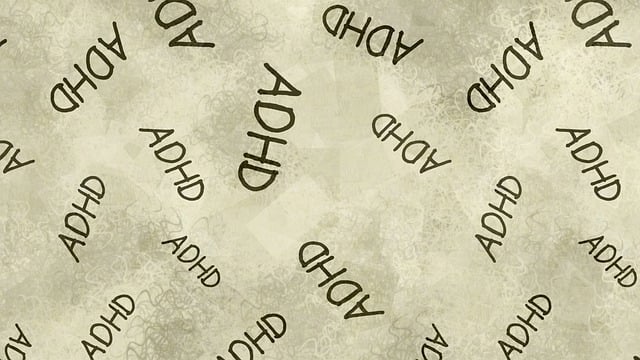Greenwood Village Bilingual Therapy offers personalized mental health care through a multi-faceted data-driven approach. Combining structured assessments, open-ended conversations, and evidence-based practices, their therapists gather nuanced insights to tailor interventions. Utilizing statistical modeling, machine learning, predictive analytics, and qualitative analysis, they identify trends, forecast crises, and enhance care. This method improves self-awareness, conflict resolution, risk management, and overall well-being for clients while proactively addressing community mental health needs and prevention strategies.
Mental health data analysis is a powerful tool for understanding patient needs, guiding treatment plans, and improving outcomes. This article explores best practices in mental health data collection and interpretation through the lens of Greenwood Village Bilingual Therapy. We delve into the unique challenges and opportunities of gathering diverse linguistic and cultural perspectives. By examining techniques for effective analysis, we demonstrate how this approach can enhance patient care and transform mental health services at Greenwood Village and beyond.
- Understanding Mental Health Data Collection at Greenwood Village Bilingual Therapy
- Techniques for Effective Analysis of Mental Health Data
- Interpreting Data to Improve Patient Care and Outcomes
Understanding Mental Health Data Collection at Greenwood Village Bilingual Therapy

At Greenwood Village Bilingual Therapy, we recognize that effective mental health data analysis and interpretation are cornerstones of delivering tailored care. Our approach to data collection is comprehensive yet sensitive, ensuring every individual’s unique needs are accurately represented. Through structured assessments and informal conversations, therapists gather insights into clients’ experiences, behaviors, and emotional states. This methodical process involves utilizing standardized tools alongside open-ended inquiries, allowing for a nuanced understanding of mental health challenges and strengths.
Our team is dedicated to not only interpreting the data but also integrating it with evidence-based practices. By analyzing trends and patterns, we can design interventions that foster self-awareness exercises, facilitate conflict resolution techniques, and implement risk management planning for mental health professionals. This holistic approach ensures that clients receive personalized support, ultimately enhancing their well-being and resilience.
Techniques for Effective Analysis of Mental Health Data

In the realm of mental health data analysis and interpretation, a multifaceted approach is crucial to unraveling complex trends and insights. Techniques such as statistical modeling and machine learning algorithms play a pivotal role in making sense of vast datasets. By employing these tools, researchers at Greenwood Village Bilingual Therapy can identify patterns that may indicate emerging issues or highlight successful interventions. For instance, predictive analytics can forecast mental health crises, enabling proactive support systems to come into play. Additionally, data visualization techniques transform raw numbers into comprehensible graphs and charts, aiding in the communication of findings to both professionals and policymakers.
Beyond quantitative methods, qualitative analysis offers a deeper understanding through Self-Awareness Exercises and Mental Wellness Journaling Exercise Guidance. Encouraging individuals to reflect upon their experiences and emotions provides valuable context that numerical data alone might overlook. This approach fosters a holistic perspective on mental wellness, aligning with the goal of enhancing Confidence Boosting. Integrating these diverse techniques allows for a comprehensive analysis, ultimately guiding evidence-based practices in the field of mental health care.
Interpreting Data to Improve Patient Care and Outcomes

When it comes to mental health data analysis, interpreting the findings is where true value is unlocked. By delving into the numbers, therapists and healthcare professionals at Greenwood Village Bilingual Therapy can gain profound insights into patient needs and trends. This process involves not just understanding individual cases but also recognizing patterns that may indicate broader community issues. For instance, analyzing feedback from clients about their therapy experiences can reveal areas for improvement in treatment modalities or staff training.
This data-driven approach is pivotal in enhancing patient care and outcomes. It enables therapists to tailor interventions, ensuring the most effective Compassion Cultivation Practices are employed. Moreover, by identifying common struggles through Mental Health Education Programs Design, burnout prevention strategies can be proactively implemented to support both patients and healthcare providers. Through continuous analysis and interpretation, Greenwood Village Bilingual Therapy remains at the forefront of delivering compassionate and culturally sensitive mental health services.
Mental health data analysis is a powerful tool that, when applied thoughtfully, can significantly enhance patient care at places like Greenwood Village Bilingual Therapy. By understanding unique collection methods and employing effective analytical techniques, therapists can interpret data to make informed decisions. This process not only improves individual treatment plans but also contributes to better overall outcomes for patients. Through continuous data analysis and interpretation, Greenwood Village Bilingual Therapy can remain a leader in providing compassionate, evidence-based mental health care.









